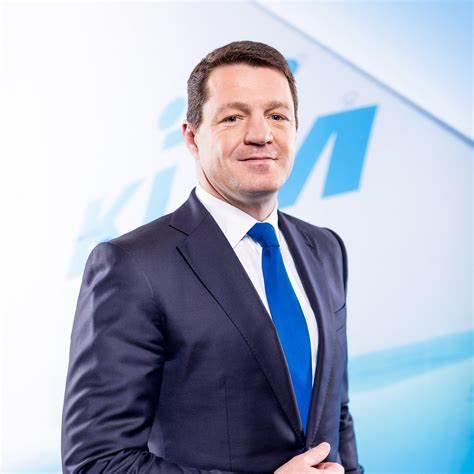Dutch carrier expands network in country to meet rising demand
By Zhu Wenqian | China Daily | Updated: 2019-12-04 10:22

What are the differences between the Chinese market and other global markets?
The biggest differentiator is the speed of technological development, whether it is the use of facial recognition, mobile phones or social media. We are cooperating with some Chinese companies; 10 years ago, they came to us to learn, and now we come here to learn, so it has reversed completely.
A lot of Chinese airlines have launched direct flights between China and Europe. What is your competitive edge over them?
With Amsterdam serving as our hub, we can connect Chinese customers to more than 80 destinations in Europe, and also to South America, Africa, and other places. Maybe 10 years ago, the majority of Chinese tourists went to Paris, Rome, Milan and Barcelona, and they went with groups. Today, Chinese travelers are different, they want to explore by themselves and find their own way using their mobile phones. Our network allows them to go to lots of different places.
Will the Chinese market continue to grow? What are the reasons behind this growth?
We are quite confident about growth in China. The whole world has witnessed the tremendous changes in China during the past 70 years. According to the Chinese National Bureau of Statistics, GDP in the first half of this year increased by 6.3 percent year-on-year, in terms of comparable prices. China is still the fastest-growing large economy in the world. So the Chinese market is performing well.
China is one of the most important markets for Air France-KLM Group. It is the second international market, and the first in Asia. We recently further expanded our network in China by code-sharing destinations in partnership with China Eastern Airlines. The number of destinations increased from 14 to 63, including Yinchuan, capital of the Ningxia Hui autonomous region, Xining, capital of Qinghai province, and Shantou and Zhanjiang in Guangdong province. This means KLM can offer customers an even more comprehensive network in China.
China Eastern, in turn, offers code-sharing services to 24 new European destinations via the KLM network through Amsterdam, connecting with China Eastern flights between Shanghai and Amsterdam. China Eastern will offer 39 destinations in Europe, including Turin in Italy, Warsaw in Poland and Basel in Switzerland. The KLM flights between Amsterdam and Shanghai have been part of the joint venture between Air France, KLM and China Eastern since the end of last year.
Are there any concerns about overcapacity?
In the summer of 2019, we saw a significant increase in capacity between China and Europe, compared to the past three years. However, KLM sees the Chinese market as an important growth market and maintains focus on routes to China. With economic uncertainties today, we keep a close eye on the development of different capacities.
Does KLM have any business plans related to the Belt and Road Initiative?
KLM does not currently have business plans specifically related to the Belt and Road Initiative. However, the Chinese market is important for KLM and the focus for KLM will be strengthening existing routes to and from China.
What challenges does KLM face in China? How do you handle hardships and setbacks?
The challenges for KLM are to keep a good balance between growth in the number of seats and traffic demand and to arrange the right preconditions, such as slots, timings, lounges and transit products, in the airports in China and Amsterdam. With support from our main partners in China and a strong local presence, KLM is able to handle the challenges of the Chinese market.
What are the highlights of your career at the airline?
I have had the privilege over the past 27 years of working for KLM and working with many fantastic colleagues and business partners. In this time, I have had quite a few highlights. Being KLM's CEO and celebrating the 100th anniversary on Oct 7 in Shanghai is the absolute highlight, together with all of our partners across the globe. We looked back with pride and ahead with confidence.
I think KLM has made great strides in recent years. Customer appreciation is high, there are many compliments from passengers and their loyalty to KLM is high. In terms of business organization, things are going well. Our finances are also in good shape: we have been able to reduce debts and have made huge investments.
What are your hobbies?
I am convinced that a healthy mind equals a healthy body. I run regularly to stay fit.
CV
Name: Pieter Elbers
Age: 49
Nationality: Dutch
Career:
Nov 2014 to now: President and CEO of KLM Royal Dutch Airlines
Jan 2011-Oct 2014: Chief operating officer, KLM
Jan 2005-Dec 2010: Senior vice-president of network and alliances, KLM
2002-05: General manager of Japan and Korea, KLM
2000-02: General manager of Mediterranean, KLM
1992-95: Manager of aircraft loading, KLM
Education:
Master's degree from Open University in Amsterdam
Bachelor's degree from the Academy of Venlo
Studied at the International Institute for Management Development in Lausanne, Switzerland; Columbia University in New York; and Tsinghua University in Beijing
Family: Married with three children
























